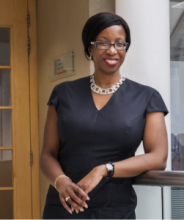Today is Ombuds Day, an annual day to recognise and raise awareness of the work of Ombudsman institutions throughout the world.
Today is Ombuds Day, an annual day to recognise and raise awareness of the work of Ombudsman institutions throughout the world.
The theme of this year’s Ombuds Day is “Unusual Name. Important Service.” something we here at SCOAF couldn’t agree with more!
Ombudsman is a term that might seem old-fashioned and clunky, but even though it dates back to the 1500s the role of an Ombudsman is definitely something for the modern age.
While each Ombuds organisation will have different powers and jurisdictions, all are independent, impartial and free, and are important facilitators of change.
Interview with our Ombudsman, Nicola Williams.

When did you become an Ombudsman?
I first became an Ombudsman 18 years ago, after having spent a very long time in private practice. Since then, I have had 4 different Ombudsman roles, in the UK and the Cayman Islands.
Why did you choose to leave private practice and go into this line of work?
Well, I had a very interesting career in private practice and I loved it, absolutely loved it. But, professionally, it was all I had ever done and there came a time when I wanted to do something else. I wanted to do something that was more directly involved with social justice and that is something the role of an Ombudsman can achieve.
What is one thing about the role of an Ombudsman that people may not know?
One thing people may not know about Ombudsman in general? That is difficult as every organisation is different. But the one thing that is consistent across all organisations is that anyone can access an Ombudsman directly and at no cost.
But, in terms of my current role? A lot of people might not know that no one can be appointed as the Service Complaints Ombudsman for the Armed Forces if they have served in the military. This is to ensure the position is truly independent – including the perception of independence.
Why do you think SCOAF is an important service?
I think it is a very important service because since 2016 not only do Servicemen and women have an independent point of contact outside the chain of command, but they can actually come to an Ombudsman that can affect the decisions that are made by the chain of command.
It’s also free, and anybody who has been wronged in their Service life can come to our office.
What has been your biggest achievement as the Service Complaints Ombudsman for the Armed Forces?
I am coming to the end of my fourth year as Ombudsman and I think my biggest achievement so far is that I have been able to make effective recommendations in order to improve the Service Complaints system for all Service personnel.
I still have just over a year to go, so there may be bigger achievements ahead!
What are you most looking forward to in the last year of your term?
I am looking forward to leaving a very solid legacy for this office that my successor can build on. I am the first Ombudsman that the UK Armed Forces has ever had and we are still a young organisation. By leaving a solid legacy, my successor can ensure that version 2.0 is even better than what we have already built.